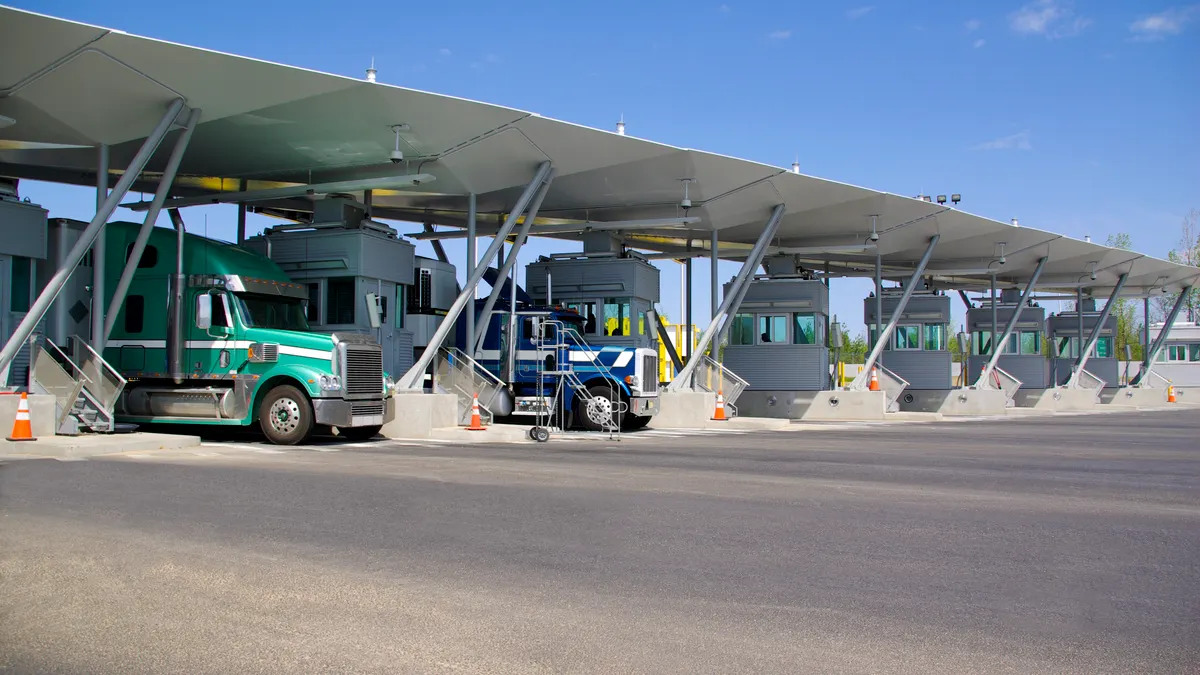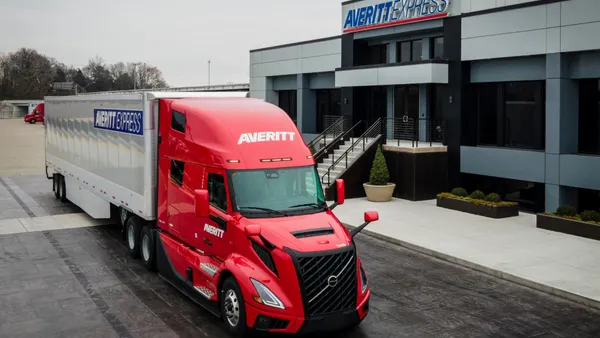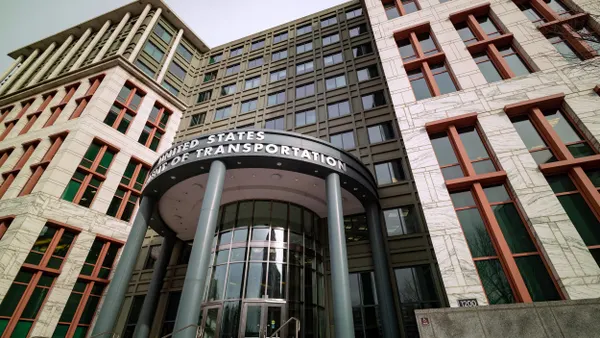Dive Brief:
- Between March 1-28, trucks transporting goods into New York experienced extended delays at facilities 68% more frequently than in January and February, according to FourKites. "No city has suffered bigger interruptions than New York," Vivek Vaid, FourKites CTO, wrote in a blog post. "As the nation's largest and densest metropolitan area, any fluctuations in the supply chain were likely magnified disproportionately compared to other metropolitan areas," Vaid wrote.
- Trucks going into New Orleans, Detroit and San Francisco, in total, saw more frequent delays only 36% more of the time than in January and February. FourKites said it has been following volume trends in these cities, and in New York, because they have been hit hard by COVID-19. Since March 28, extended dwell percentages for all four cities have retreated to 14.9% above January and February averages. New York settled at 17.3% above average and the remaining three cities at 13.6%.
- "As we continue to learn from the experience of New York and other regions during this crisis, one clear takeaway is that companies that are prepared with better data and insights are more adaptable in reacting to these conditions — sometimes hours or days before they occur," Vaid wrote.
Dive Insight:
Data in trucking and logistics is almost everywhere now. So, the proper refinement and use of data are valuable, especially in crises. But although the data to help solve or avoid the problems of dwell times, truck parking and traffic is available, fleets are still in the process of transitioning to artificial intelligence (AI) to sort through the incoming gigabytes of information per hour, and make simple recommendations to drivers and dispatch offices.
Steve Chaffee, director of fleet innovation, research and development for Hitachi Group, told fleet officials that the digital potential was "staring you in the face." At a presentation at the Fleet Data Management and Cybersecurity Conference, hosted June 26 by the Technology & Maintenance Council of American Trucking Associations, he told attendees that carriers who embrace technology can wring an 80% average improvement in three-year operating margins by mining data to improve performance and avoid breakdowns.
Coyote Logistics, a UPS subsidiary, said fleets and supply chain managers should be more aggressive in handing off route-planning and other tasks to its silicon-chipped partners. Last year, Coyote and Martec issued a report recommending a balance of 60% technology and 40% human expertise to "optimally" manage supply chains, "reaffirming Coyote's longstanding position that the two must go together to succeed in an evolving world."
But during the pandemic, already abnormal conditions are ever-changing and are difficult to predict, even with sophisticated data. Dwell times are likely all the more frustrating, as U.S. highways and many roads leading into cities have cleared up because of so many commuters staying home.
On April 3, Vaid said in a blog post that the decline in car traffic has led the average shipment times to run 2% faster in the United States and Europe, "likely a reflection of decreased traffic on the roads, as well as the recently enacted emergency waiver governing trucking [HOS] regulations."
Vaid said conditions at loading docks won't necessarily be better when things return to normal. Instead, Vaid said it's "clear that domestic freight markets should expect to be under more strain from a surge in inbound traffic as manufacturing in Asia returns to pre-crisis levels."








